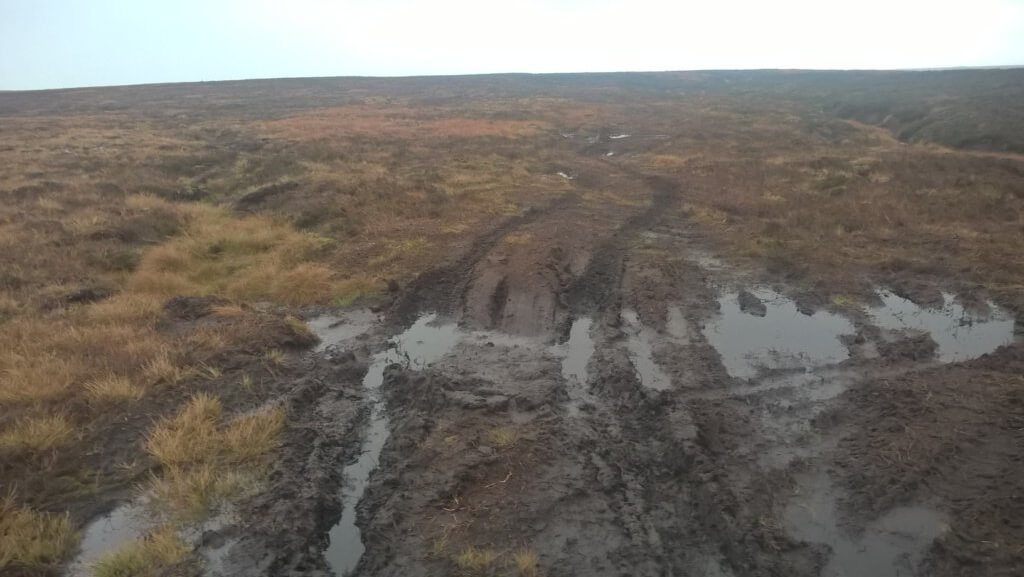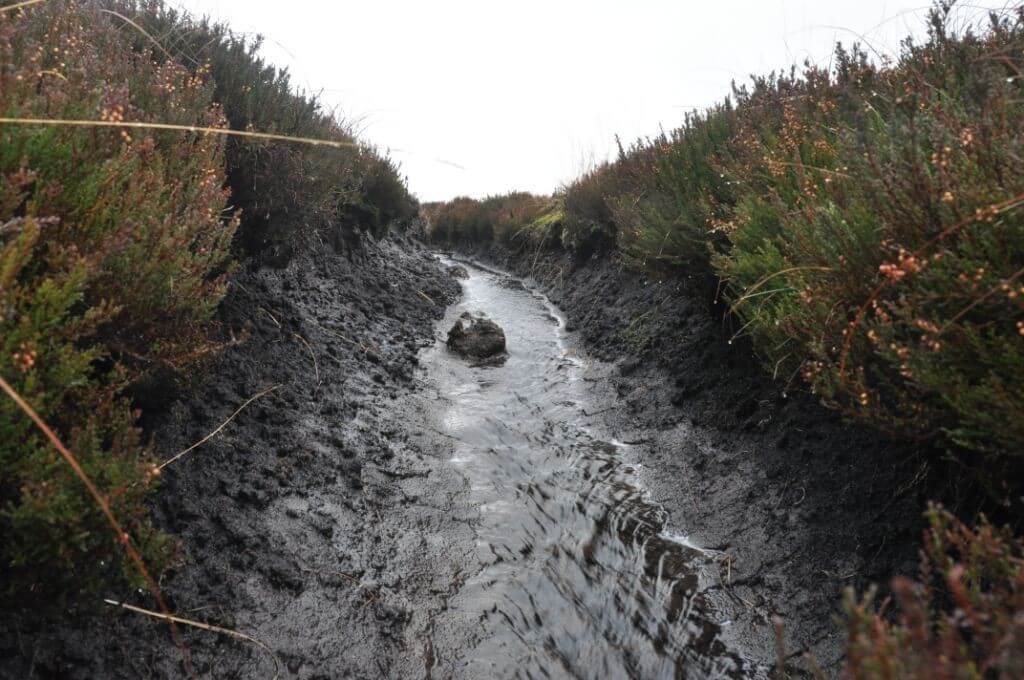
It’s a long time now since I worked in nature conservation and so increasingly I find that the jargon has moved on from that with which I used to be entirely comfortable. When Moorland Management Plans came up in a conversation with an old friend I had to admit to being unaware of what they are and what they are for. I think it was the use of the phrase ‘sordid little deals’ that may have nudged my interest.
And so I asked Natural England about Moorland Management Plans (having failed to find out much through the process of employing a search engine). This is what I asked and what NE was kind enough to reply:

What is the role of Moorland Management Plans (MMPs) in ensuring that upland areas meet their conservation potential?
Natural England has been working on the development of long term upland management plans with land managers which combines (sic) the full range of outcomes as appropriate to that site – so the sorts of things they can include are: developing positive action required to deliver for range of habitats and species, understanding and enabling grouse management and upland farming/grazing, delivering improvements to water supply/flooding and tackling climate change (through peat restoration). The concept of these long term plan starts with encapsulating a vision for achieving long term environmental gain whilst enabling the businesses to thrive. Each plan will differ slightly in terms of its vision, focus, lifespan and tone – so they will be bespoke to each site.

How many MMPs does NE hope to see by what time, and how large an area will they cover?
We have mapped out which year we would to start discussions on a long term plan – which gives us figures as follows:
For 2017 and 2018 – 86
For 2018 through to 2024 – 101
We’ve not mapped out the total area they will cover, but have been able to look at the forecast ha of blanket bog habitat in the plans we would like to start discussions on in 2017 and 2018 – this is 32,466 ha.

How many MMPs have been completed so far?
We expect the first ones to be completed in the next 2-3 months.

What is the timetable for publishing MMPs?
The plans will belong to the land manager/s and we will work with each of them on how best to communicate their plan.
 Quite interesting. From this I take the message that NE isn’t really in charge of what the plans say nor in whether the public who pay NE salaries will know much about them. There certainly appears to be the scope for sordid little deals in the process but I guess that we will have to wait and see. Although maybe we will have to just wait and not see anything.
Quite interesting. From this I take the message that NE isn’t really in charge of what the plans say nor in whether the public who pay NE salaries will know much about them. There certainly appears to be the scope for sordid little deals in the process but I guess that we will have to wait and see. Although maybe we will have to just wait and not see anything.
I wonder what role MMPs will play in getting moorland burning under control? Or use of vehicles on sensitive sites? Or the proliferation of unconsented tracks over grouse moors? Their content will tell us whether NE is acting as a regulator of environmentally damaging activities on our moorlands, or as a mate to intensive grouse shooting.
Remember, there is still a live complaint being handled by the EU over intensive moorland management at Walshaw Moor and across the English uplands. I wonder how it’s going in these post-Brexit-vote days? What might the Walshaw Moor MMP say? Will it make things better or worse? And when will the public see it?
Not only does the jargon move on, but so does the internal culture of our statutory nature conservation agencies. Can anyone imagine (this is a rhetorical question, and many of the readers of this blog are too young for it to have much resonance anyway) Derek Ratcliffe approving of NE working on bespoke plans with the people who manage grouse moors in England? One has to wonder, not for the first time, whether NE is any longer fit for purpose. Maybe MMPs will answer that question one way or another.
I’ve moved from not knowing what MMPs are to being very interested in them. Very interested. Really, very interested.
[registration_form]
The grouse shooting industry must be very nervous of losing the protections they currently enjoy from the current Government via Natural England. To paraphrase Harold Macmillan: “They have never had it so good”.
To my mind the MMP process smacks of an insurance policy against a change of Government, and is a policy designed to enshrine the rights of moorland owners to continue to intensively mismanage moors over the duration of the MMP. It would be interesting to note the time period that NE intends that these plans should last, 10 years? 20 years? NE are no doubt quite keen on this because in the future they will be able to use the MMP’s as an excuse for not being able to intervene.
From the grouse shooting industries perspective, this seems like a clever move, well in the short-term at least.
Interesting Mark, thanks
So, just wondering (as they say) any other SSSI/Natura 2000 site which have development proposals for or actions requiring consents sees the developer have to undertake the application (in this instance the MMPs) so why are NE (public funded) undertaking work for private landowners / commercial businesses?
NE public servants fit for purpose?
Working for MAFF/DEFRA/RDS/NE I produced numerous Moorland Management Plans for Dartmoor and occasionally for other SW upland areas from about 2000 onwards until 2010. These were produced in consultation with National Park Authorities and other stakeholders including Commoners Associations. No ‘sordid little deals’ were entered into on my watch. However, many were a compromise compared to the ideal, that in some cases would have been complete removal of stock, or virtually so. Some of the plans worked well for environmental interests and the commoners. Some did not work so well for various reasons including, for instance, lack of targeted shepherding and un-planned burns. The technical staff in NE do their utmost to provide the best plans for the environmental interests on sites across England. However, political and commercial interests have got in the way of that process at times.
NE is under different pressures today than it was from 2006 – 2010 due to changes in political landscape. And on Dartmoor and other SW upland areas you wont have had the grouse shooting industry / Moorland Association to contend with. And whilst I know from experience just how tricky it can be to deal with Commoners Associations (a task that could tax the diplomatic skills of Henry Kissinger), nevertheless they carry nothing like the political clout of the grouse shooting industry who have a direct line straight to the top of Defra.
Moorland Management Plans seems to be little more than an exceptionally wordy way of justifying shooting and burning.
This is very much in line with what Adam Vaughan revealed in his Guardian article on 16 August 2016 “Budget cuts threaten to weaken powers of England’s nature watchdog”. This was based on leaked documents about NE’s future direction of travel, which revealed that NE was to use it’s legal powers less, and to work with the private entities that it was meant to be regulating. These MMPs are entirely in accord with this.
It is very clear that Defra, and indeed NE are under the government’s iron rule, and it is using behind the scenes blackmail to force them into compliance. The events around the Badger culling programme reveal this. It appears that Badger culling was opposed by every relevant scientific expert and yet they still forced through what in reality was party political misuse of a government department.
We have seen this government (I included Cameron’s coalition with the LibDems as this government) axe the Sustainable Development Commission, and the Department of Energy and Climate Change. Remember, environmental protection legislation was threatened under the then red tape challenge. Likewise it seems Brexit was primarily driven by the wish to see vested interests, landowners and farmers freed from EU directives to protect the environment and human health.
After the attempted Forestry Commission sell off, 2010-11, I have repeatedly stated that the Conservative Party leadership seem to have a hidden stealth agenda they have never declared. They are using a deliberate policy of doublespeak, where they are pursuing an extreme agenda, whilst justifying this with socially acceptable explanations. Remember Cameron’s “greenest ever government” deceit, where we got the exact opposite.
Being ‘plans’, any such documents likely to have a significant effect on any Natura 2000 site/s will, of course, require Appropriate Assessment (pre-BREXIT, at least), and I’d hope the RSPB and others will be consulted during plan formulation and assessment…..
NE will no doubt argue (probably correctly) that the plan is “necessary to the management of the site” and therefore Article 6(3) does not apply and consequently that the site does not require an Appropriate Assessment.
No, not true. Every aspect of a plan or project would have to be directly and entirely necessary for the management of the site for nature conservation to be exempt. These plans will all need appropriate assessments and people should be asking to see copies of them (under Freedom of Information legislation if necessary). It’s always good for a public body to know it is under scrutiny.
Very interested, but not much wiser, I suspect. The whole concept depends on where the balance lies, as Pete Stevens makes clear.
SteB1 is right that this is all about dogma – austerity was as much dogma as it was economy, and some of the fruits are coming home to roost – basically, the Conservatives set out to slash the state and effectively eliminate local Government. Remember, Oliver Letwin said the NHS would be gone within 5 years. Are the chickens coming home to roost ? damage at the front (GP) and back (social care) ends of the NHS appear to be creating the Tsunami in A&E and it’s in the balance whether the casualties will be us the taxpayer, or the Conservative politicians who caused it – and I think they know it. It would be a foregone conclusion were there an effective opposition party in England.
My first thought was similar to Pete Stevens’, in that on the face of it these new MMPs don’t look too different from previous site management plans produced for SSSI consent purposes. These gave blanket consent for agreed routine works over a period of the next few years (typically 5 years) that were either neutral or positive for the site interest, while recognising the landowners’ need to continue to gain an income from the land or do whatever else they did – eg educational visits etc . Ideally, there was a bit of negotiation looking for positive outcomes for both parties rather than win/loose compromises. Negotiating them helped the landowner to better understand the nature of the site’s wildlife interest and NE’s role and priorities, and it helped NE to understand the business model that the landowner had to operate within, as well as any personal interests that s/he might also be keen to see accommodated.
IIFR such plans were not public documents – there are often legitimate commercial (financial) confidentiality concerns on private land. My organisation was happy to share them if anyone ever asked (they did occasionally) , but then we were an NGO comfortable with greater transparency.
So not in principle these don’t sound new, and they’re not in principle a bad idea.
However NE is a neutered beast these days, and has a poor track record of challenging and enforcing against bad practice in the uplands. So we’d be right to be very cautious about what these new plans might involve and who will be able to see them, let alone monitor them. It would surprise me not a bit to see them abused.
Are Appropriate Assessments (for N2k sites) automatically in the public domain, or at least FOI-able? I don’t know, but another reader might? (please!).
Appropriate Assessments are not automatically put in the public domain but people could certainly request them under Freedom of Environmental Information legislation. There are very limited reasons to withhold information under theses regulations and I can’t imagine these would apply to many (or any?) of these Assessments. I think the same would also apply to the Moorland Management Plans themselves.